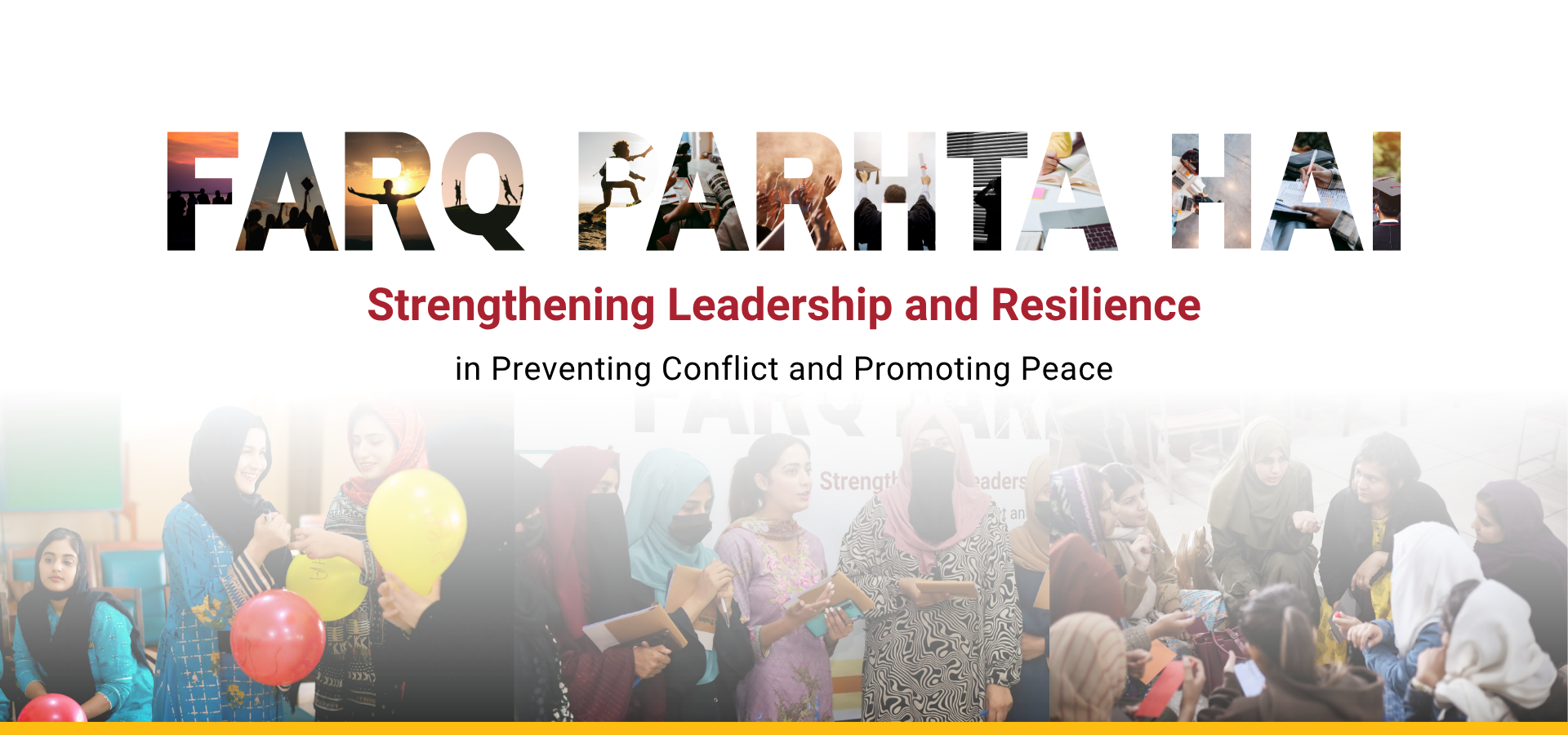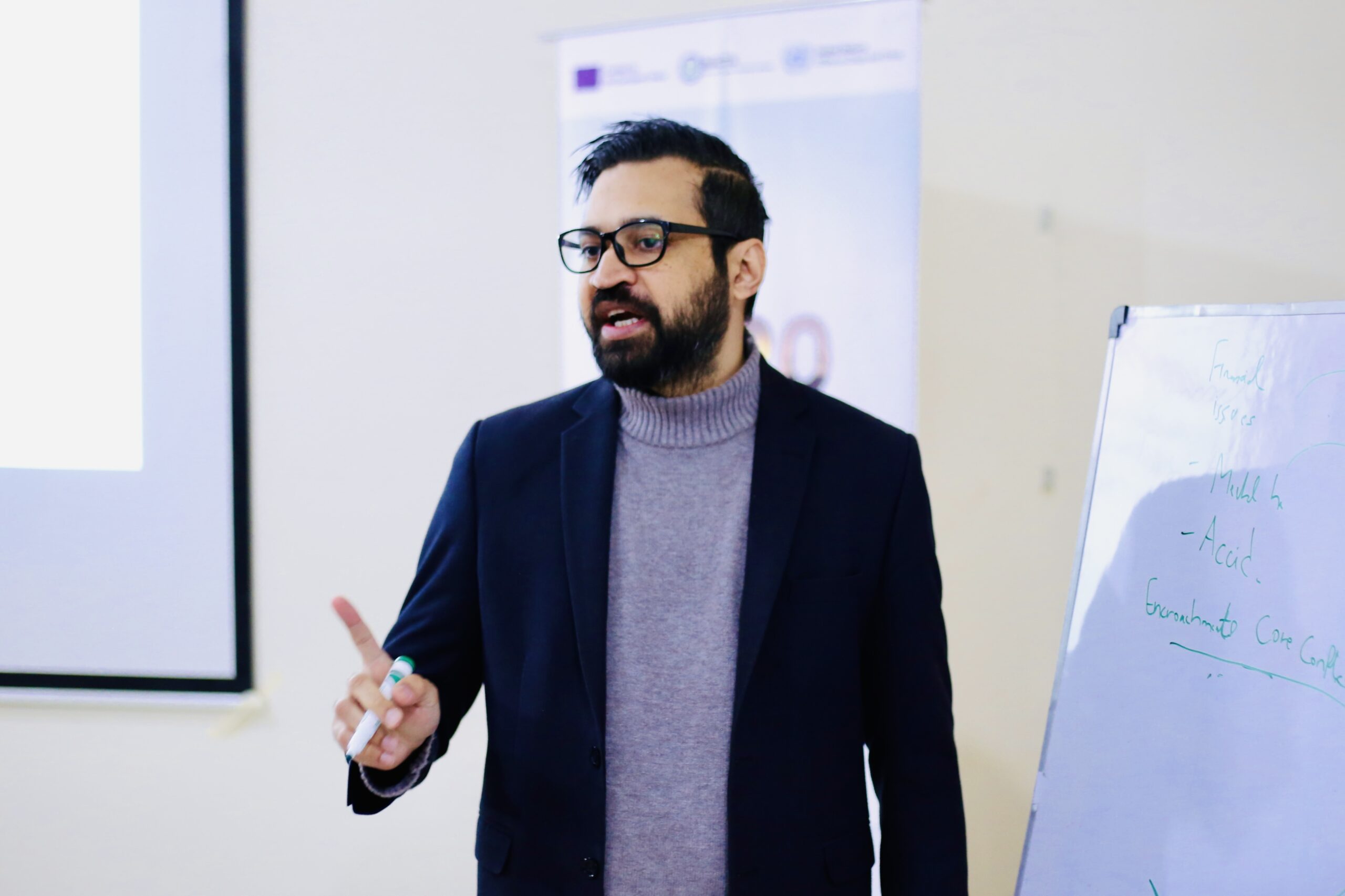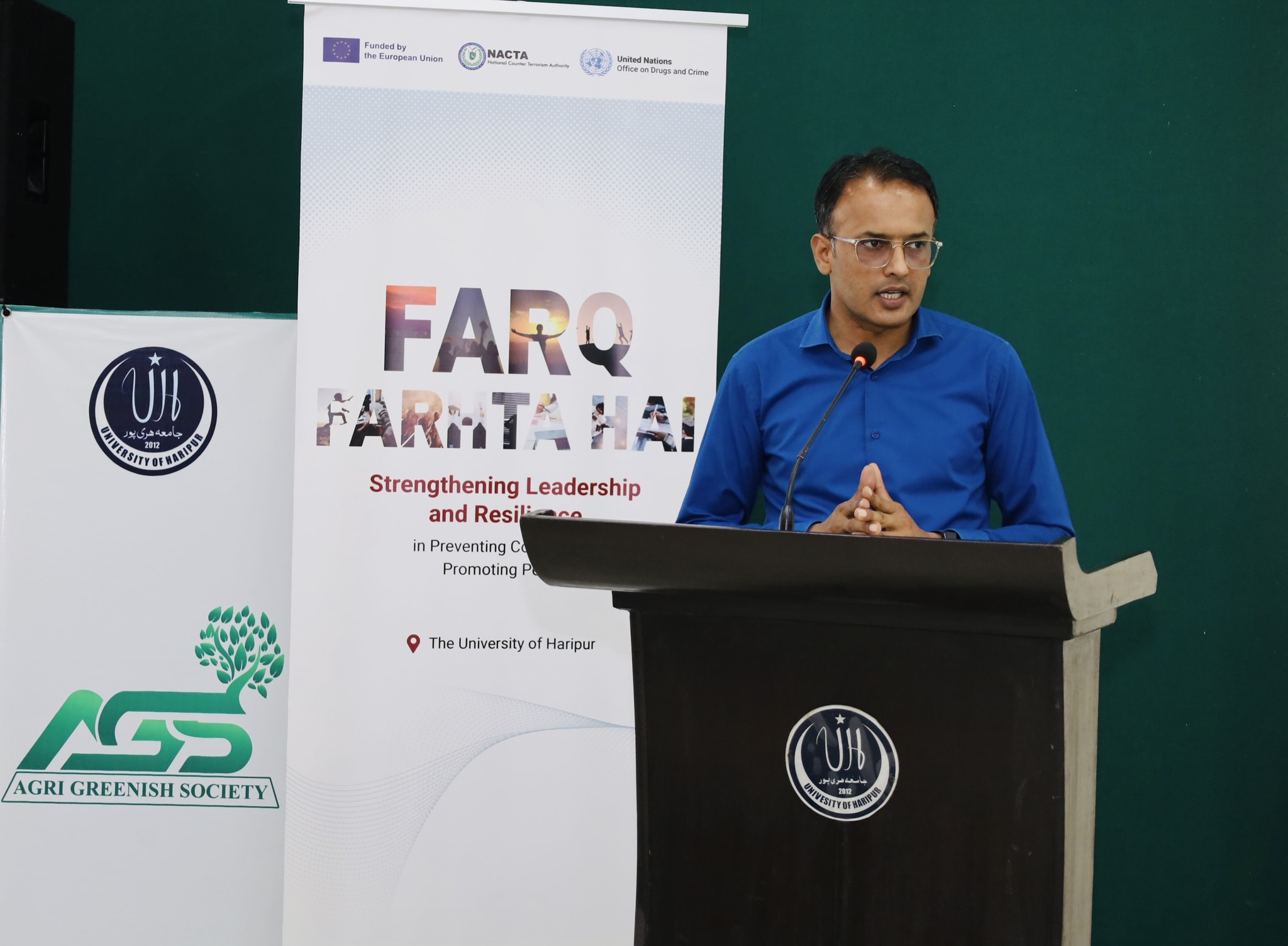NEWS

IN BRIEF
It was a quiet afternoon in Haripur when Sana (not her real name), a university student, stood up after a session and said, “For the first time, I feel someone is listening to us, not just telling us what to think, but trusting us to lead.” Her voice cracked slightly, […]
SHARE
It was a quiet afternoon in Haripur when Sana (not her real name), a university student, stood up after a session and said, “For the first time, I feel someone is listening to us, not just telling us what to think, but trusting us to lead.” Her voice cracked slightly, but her message was clear: young people in Pakistan are not the problem. They are the solution. This is precisely what “Farq Parhta Hai” (فرق پڑتا ہے) aims to demonstrate.
Launched by Accountability Lab Pakistan with support from the European Union and in collaboration with the United Nations Office on Drugs and Crime (UNODC) and the National Counter Terrorism Authority (NACTA), the Farq Parhta Hai initiative has become a vibrant movement. It empowers young people across Pakistan to lead change, counter extremism, and build peaceful, inclusive communities. Over the past several months, the project has reached hundreds of young women and men across five universities in Islamabad, Rawalpindi, Mardan, Haripur, and Khairpur through a series of training workshops, panel discussions, and digital storytelling.
This blog takes you through the heartbeat of this journey, celebrating the achievements of a Farq Parhta Hai that didn’t just teach resilience—it lived it.
Bridging the Gap with Youth Leadership
Youth in Pakistan comprise over 62% of the population and live at the intersection of hope and hardship. Economic frustrations, weak governance system, misinformation, disinformation, and political polarisation all contribute to a volatile environment where extremism can flourish.
But what if youth could become agents of peace instead?
That question guided the vision of Farq Parhta Hai. At its core, the project is not just about countering violent extremism (CVE). It is about empowering young people to counter narratives, question misinformation, and bridge divides using tools that make sense to them.

Countering Fake News
One of the flagship activities of the initiative was a series of training workshops at each university, which went beyond theoretical sessions. These workshops focused on practical skills about peacebuilding, leadership, countering fake news, how to respond to hate speech, and how to access and use Right to Information (RTI) laws to hold officials accountable and promote transparency.
In each training, I led important sessions on countering fake news (misinformation and disinformation), equipping participants with fact-checking tools and simple verification techniques. Using real-world examples from WhatsApp forwards, political propaganda, and online scams, students learned how disinformation operates and how they could counter it. These weren’t just lectures. They were engaged in conversations and group activities. And the message was clear: truth matters, but access to information is the foundation of truth.

Youth-led Projects
As part of its commitment to youth leadership, Farq Parhta Hai opened a call for youth-led initiatives, encouraging workshop participants to submit their own project ideas. From peace murals to online awareness campaigns, students have started submitting concepts to promote harmony and strengthen peacebuilding on campus and in their communities.
These youth-led projects will receive both financial and technical support for selected youth-led initiatives. This next phase of implementation is not solely about impact. It is about trust. It conveys to young leaders: “We believe in your ideas. And we are here to help you bring them to life.”
Podcasts. One Nation. Countless Voices
In parallel with in-person activities, the project also launched a podcast series featuring leading voices in peacebuilding, interfaith dialogue, gender inclusion, and CVE.
A series of compelling episodes has been produced and rolled out on Accountability Lab’s social media platforms and website. These podcasts bring together scholars, journalists, and activists to discuss topics like hate speech, community resilience, and the power of storytelling. The idea is simple but powerful: in a digital world polarised by toxic noise, we need new, credible voices, and these podcasts deliver them.
Dialogue Over Division: Outreach Events & Panel Discussions
Creating safe spaces for open discussion was another key objective. The team facilitated a series of outreach workshops and student-led panel discussions, where students debated critical issues around identity, tolerance, misinformation, and digital rights.
These events were more than academic exercises. They brought together students from diverse backgrounds. As one participant in Khairpur shared, “It was the first time I sat across the table from someone who didn’t think like me, and we listened, not just argued.” That’s where the real change begins.
Creativity as Resistance: The Digital Media Competition
Farq Parhta Hai also launched a Digital Media Competition to tap into student creativity. Youth were invited to submit human stories, blogs, short videos, animations, or graphics creatively expressing themes of peace, inclusion, or counter-extremism. Entries are rolling in, showcasing how students interpret peace and resistance in their own languages, dialects, and experiences. It’s a reminder that sometimes, art speaks where data cannot.
Why It Matters
In an era of growing polarisation and digital manipulation, initiatives like Farq Parhta Hai are no longer optional—they are essential. The project has shown that when young people are given the right tools, spaces, and trust, they not only reject extremism, they build alternatives.
They choose debate over hate. Facts over fear. And community over chaos.
This initiative didn’t just plant seeds. It built a garden of ideas, nurtured by young students, rooted in resilience, and blossoming across campuses from Khairpur to Islamabad.
What’s Next?
The journey isn’t over. As Farq Parhta Hai prepares to support selected youth-led projects and wrap up the digital competition, the next chapter is about sustaining the impact. The podcasts will keep playing. The videos will keep inspiring. And the empowered students will continue to lead.
Conclusion
In Urdu, Farq Parhta Hai means “It makes a difference.”
“And indeed, it has. When we give young people a chance, they deliver. When we trust them, they rise to the occasion. When we engage them, they feel empowered. And when we listen, the gap they have long felt between themselves and the systems meant to serve them begins to close.” – Syed Raza Ali
This project was never just about activities. It was about building trust, empowering youth voices, and creating space for ideas that can shape a more peaceful and inclusive future. Farq Parhta Hai has shown that change is not only possible. It is already happening, led by those who were once ignored but are now leading the way.
About the Author
Syed Raza Ali Shah is the Program Manager at the Accountability Lab Pakistan, and can be reached at raza@accountabilitylab.org
